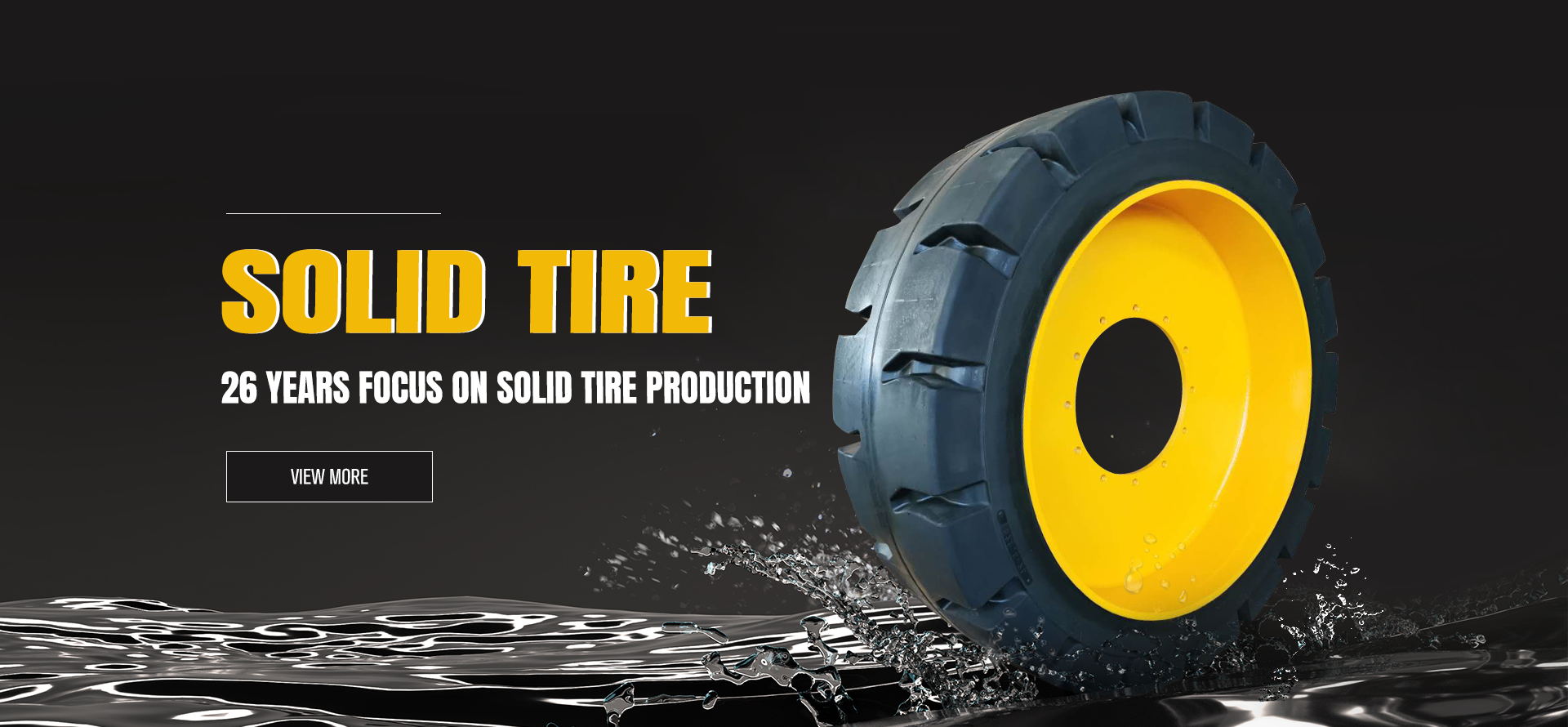For businesses in the recycling, waste management, and scrap handling industries, productivity is everything. But in an environment filled with sharp metal, glass, and heavy debris, tire damage is a constant and costly threat. Standard pneumatic tires simply can’t withstand these harsh conditions, leading to frequent flats, expensive repairs, and significant downtime. The solution lies in specialized industrial tires for recycling yards. This blog post will explore why these purpose-built tires are essential for maximizing uptime, improving safety, and boosting your bottom line.
Why Standard Tires Don’t Make the Cut
Recycling yards are notoriously brutal on equipment, and tires are often the first component to fail. Conventional pneumatic tires are susceptible to a range of issues that can cripple your operations:
- Frequent Punctures: A single nail or shard of glass can instantly render a pneumatic tire useless, bringing a loader, skid steer, or forklift to a halt.
- Costly Repairs and Replacements: The cycle of patching, repairing, or replacing damaged tires adds up quickly, draining your maintenance budget.
- Unscheduled Downtime: Every minute a machine is out of service due to a flat tire is a minute of lost productivity and revenue.
- Safety Risks: A sudden tire blowout can compromise machine stability, putting operators and other workers in danger.
The Advantages of Specialized Industrial Tires
Specialized industrial tires for recycling yards are engineered from the ground up to overcome these challenges. Their design is a direct response to the aggressive nature of recycling environments.
- Puncture-Proof Construction: The most significant advantage is their solid, airless design. Made from a durable rubber compound, these tires are completely immune to punctures from sharp objects, ensuring your equipment stays operational.
- Extended Service Life: With no air to lose and a robust construction, these tires have a much longer lifespan than traditional pneumatic tires, reducing the frequency of costly replacements.
- Enhanced Stability and Load-Bearing: The solid design provides a stable, firm base for machinery, improving load-bearing capacity and giving operators more control when handling heavy and unbalanced loads.
- Reduced Maintenance: Since there’s no air pressure to maintain, these tires eliminate the need for daily checks, weekly top-ups, and the hassle of repairing flats. This frees up your team to focus on more critical tasks.
- Increased Safety: By eliminating the risk of sudden blowouts, these tires enhance the overall safety of your worksite, protecting both your equipment and your crew.
Choosing the Right Tires for Your Operation
When selecting industrial tires for recycling yards, consider these key factors to get the best performance and value:
- Tire Type:
- Solid Tires: Best for puncture resistance and stability. They are the most common choice for recycling yards.
- Foam-Filled Tires: Pneumatic tires filled with a special foam. They offer the puncture resistance of solid tires with a slightly softer ride.
- Tread Pattern: The tread determines traction. Choose an aggressive, deep tread pattern for better grip on loose debris and uneven surfaces.
- Compound Quality: A high-quality rubber compound is crucial for resisting cuts and abrasions. Look for tires made from premium materials for maximum durability and a long service life.
- Size and Compatibility: Always ensure the tires are the correct size and load rating for your specific equipment to guarantee a proper fit and safe operation.
Conclusion
Investing in purpose-built industrial tires for recycling yards is a strategic decision that pays for itself many times over. By dramatically reducing downtime, eliminating repair costs, and significantly improving workplace safety, these tires are an essential upgrade for any business operating in a tough environment. Making the switch to these specialized tires ensures your equipment keeps working, your team stays safe, and your business remains productive and profitable.
Frequently Asked Questions
What’s the difference between solid and foam-filled industrial tires?
Solid tires are made of a dense rubber compound and contain no air. Foam-filled tires are conventional pneumatic tires that have been filled with a polyurethane foam, giving them puncture resistance with a slightly more cushioned ride.
Are industrial tires for recycling yards more expensive than standard tires?
The initial cost is higher, but the long-term savings from eliminating flats, repairs, and downtime make their total cost of ownership significantly lower.
Do these tires require any special maintenance?
No, the main benefit is a substantial reduction in maintenance. With no air pressure to check or maintain, you eliminate the daily and weekly tire checks required for pneumatic tires.
Can I use these tires on any heavy equipment?
Yes, these tires are available for a wide range of heavy equipment, including skid steers, wheel loaders, telehandlers, and forklifts. It’s crucial to ensure the tire size and load rating match your specific machine’s specifications.
Post time: 06-08-2025

